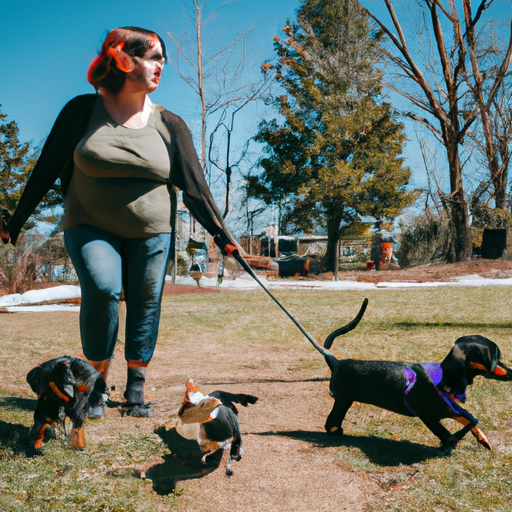Becoming a puppy walker is a rewarding journey filled with joy and challenges. This guide will provide you with all the knowledge you need to start, and successfully navigate, your puppy-walking journey.
1. Understanding the Role of a Puppy Walker
As a puppy walker, your primary role is to socialize the puppy and prepare them for their future as a working dog. This involves exposing them to a variety of environments, experiences, and people.
- Socialization: Your puppy should be comfortable in different situations. Take them to parks, shopping centers, and on public transportation.
- Training: Teach basic commands such as sit, stay, come, and heel.
- Healthcare: Ensure your puppy is well-cared for with regular vet check-ups and vaccinations.
2. The Importance of Consistency
Keeping a consistent routine is crucial for your puppy’s well-being and training progress.
- Feeding times: Puppies thrive on routine. Feeding at the same times each day will help regulate their digestion and toilet habits.
- Exercise: Regular walks and playtime are vital for your puppy’s physical and mental health.
3. Essential Items for Puppy Walkers
Having the right equipment can make puppy walking more enjoyable and less stressful. Here are some essentials:
- Lead and Harness: Choose a comfortable, adjustable harness and a sturdy lead.
- Toys: Great for distraction, comfort, and play.
- Treats: Useful for training and rewarding good behavior.
| Item | Description | Use |
|---|---|---|
| Lead & Harness | Adjustable and comfortable | Walking |
| Toys | Variety of types | Playtime |
| Treats | Healthy and appealing | Training |
4. Potential Challenges
Being a puppy walker is not always easy. Here are a few challenges you might face:
- Separation anxiety: Puppies can become distressed when left alone. Gradually build up the amount of time they spend alone to help them feel secure.
- Toilet training: Accidents will happen. Patience and consistency are key.
5. The Rewards of Puppy Walking
Despite the challenges, the rewards of being a puppy walker are immense:
- Joy: Witnessing a puppy’s firsts – first walk, first command learned – is delightful.
- Connection: The bond you form with your puppy is incomparable.
- Contribution: You’re preparing the puppy for an important role, which brings a sense of purpose.
6. Supporting Your Puppy’s Development
As a puppy walker, you’re instrumental in shaping your puppy’s development.
- Mental Stimulation: Puzzles and training sessions can keep your puppy’s mind sharp.
- Physical Exercise: Regular walks and play keep your puppy fit and healthy.
- Social Interaction: Meeting other dogs and people is essential for your puppy’s social skills.
7. Preparing for Goodbyes
Saying goodbye is tough. Remember, your puppy is going on to do incredible work and the separation is a testament to your successful training.
- Transition period: Gradually decrease the amount of time you spend with the puppy to make the transition easier.
- Stay positive: Your emotions affect your puppy. Stay positive and cheerful during your goodbyes.
8. Frequently Asked Questions
Q: How long does a puppy live with a walker?
A: Typically, a puppy lives with a walker from around 8 weeks of age until they’re 12-16 months old.
Q: What support is available for puppy walkers?
A: Most organizations provide training, veterinary care, and a support network of experienced puppy walkers.
Q: Can I have a pet dog while being a puppy walker?
A: Yes, provided your pet dog gets along with the puppy and doesn’t disrupt their training.
Embracing the role of a puppy walker is a journey filled with learning, growth, challenges, and immense joy. By following this guide, you are well-prepared to embark on this rewarding path. Happy puppy walking!



